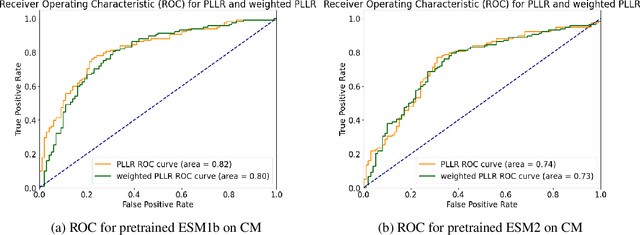ProPath: Disease-Specific Protein Language Model for Variant Pathogenicity
Paper and Code
Nov 08, 2023



Clinical variant classification of pathogenic versus benign genetic variants remains a pivotal challenge in clinical genetics. Recently, the proposition of protein language models has improved the generic variant effect prediction (VEP) accuracy via weakly-supervised or unsupervised training. However, these VEPs are not disease-specific, limiting their adaptation at point-of-care. To address this problem, we propose a disease-specific \textsc{pro}tein language model for variant \textsc{path}ogenicity, termed ProPath, to capture the pseudo-log-likelihood ratio in rare missense variants through a siamese network. We evaluate the performance of ProPath against pre-trained language models, using clinical variant sets in inherited cardiomyopathies and arrhythmias that were not seen during training. Our results demonstrate that ProPath surpasses the pre-trained ESM1b with an over $5\%$ improvement in AUC across both datasets. Furthermore, our model achieved the highest performances across all baselines for both datasets. Thus, our ProPath offers a potent disease-specific variant effect prediction, particularly valuable for disease associations and clinical applicability.
 Add to Chrome
Add to Chrome Add to Firefox
Add to Firefox Add to Edge
Add to Edge